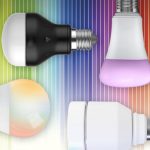Image: ASRock
Any business that relies on selling electronics to Americans is having a bit of a crisis at the moment. Less than two weeks into the new Trump administration, there’s a new 10 percent tariff on goods from China — which is most consumer goods, period — and it’s set to shoot prices through the roof. ASRock, manufacturer of motherboards and other PC hardware, is feeling the pinch.
The company told PCMag that it “need[s] some time to transfer the manufacturing to other countries.” Shipments from China via the United States Postal Service were briefly halted on Tuesday, before resuming with huge projected increases in small parcel costs. Cheap goods stores, from independent resellers on markets like Temu and AliExpress, to massive operations like Amazon, will be affected with higher costs across the board.
Vietnam and Taiwan are some potential markets that could offer additional production to electronics manufacturers, but in the meantime market forces won’t let ASRock dramatically raise prices until its competitors do the same. “In the transition period, we may absorb some of the cost and also increase some in price to reflect the increased cost,” the company said.
Moving manufacturing is never quick or easy, and moving might not even solve the problem in the long term.
After an incredibly accelerated timetable for tariffs on China (which are in addition to several existing tariffs), Trump has threatened to do the same to Taiwan, the world’s most prolific manufacturer of semiconductors. While avoiding specifics, the US president said he could impose tariffs as high as 100 percent to stimulate domestic production of computer chips. Trump has made similar threats to Europe, though he’s postponed a punishing 25 percent tariff on Mexico and Canada, America’s closest trading partner.
In short, there’s no place on Earth ASRock and other electronics companies could move their manufacturing to be truly safe from the whims of a leader who seems to make up policy on the spot. The United States’ CHIPS Act of 2022 has stimulated domestic production from companies like Intel, but modern foundries are so complex that it would take the better part of a decade to even set up the capacity to create massive amounts of electronics within American borders. And that’s saying nothing of the much higher labor and living costs in the US versus China or Taiwan.
While Trump has targetted China in particular since his first presidential term from 2016-2020, he’s been shown to be more flexible for other markets. The 25 percent hike on all goods from Canada and Mexico is currently on hold for one month to allow for more negotiation, and perhaps not coincidentally, following predictions of a disastrous domestic economic outcome even from Trump’s conservative allies.
Trump has shown himself to be particularly receptive to arguments from big tech’s largest billionaire players, like Elon Musk and Mark Zuckerberg, who recently adjusted Facebook to align with the conservative leader’s social policies. Tesla and SpaceX CEO and Twitter/X owner Musk has reportedly been given direct access to the United States’ federal payment systems, causing internal chaos as trillions of dollars in funding appears to be removed from the legal control of Congress.
Responding to the rapid and unpredictable nature of Trump’s economic policy is a tall order. American corporations could exert a lot of influence on the administration, but companies like ASRock will have to be almost entirely reactive, and will likely find the American consumer market an extremely challenging one in the short term.
Author: Michael Crider, Staff Writer, PCWorld
Michael is a 10-year veteran of technology journalism, covering everything from Apple to ZTE. On PCWorld he’s the resident keyboard nut, always using a new one for a review and building a new mechanical board or expanding his desktop “battlestation” in his off hours. Michael’s previous bylines include Android Police, Digital Trends, Wired, Lifehacker, and How-To Geek, and he’s covered events like CES and Mobile World Congress live. Michael lives in Pennsylvania where he’s always looking forward to his next kayaking trip.





GIPHY App Key not set. Please check settings